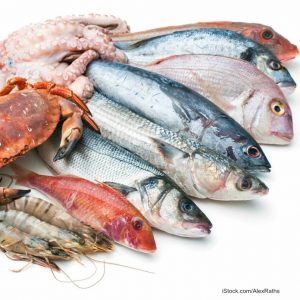Researchers at North Carolina State have verified that an inexpensive instant test for formaldehyde on food has found about 25% of the imported fish purchased at a grocery store chain in Raleigh, North Carolina had unacceptable levels of the chemical. The contaminated fish were imported from China and South Vietnam.
 Swai, cod, pollack, shrimp, tilapia, and whiting are some of the species that were contaminated. No fish from the United States or other regions tested positive for formaldehyde.
Swai, cod, pollack, shrimp, tilapia, and whiting are some of the species that were contaminated. No fish from the United States or other regions tested positive for formaldehyde.
The chemical occurs naturally in tiny quantities in fish and other foods, including fruits and vegetables, but the levels found in the tests were far beyond normal or acceptable. The FDA does not test fish for formaldehyde, even though some countries such as Bangladesh use it to preserve food when refrigeration is inaccessible. It is also used as a bleaching agent on mung bean vermicelli, tripe, and soy bean sticks, as officials in Hong Kong have discovered.
Formaldehyde is a carcinogen that is primarily used for embalming corpses and is used to produce wood products. The National Cancer Institute states that formaldehyde exposure can cause leukemia and nasopharyngeal cancers and it may affect the lymphatic system.




